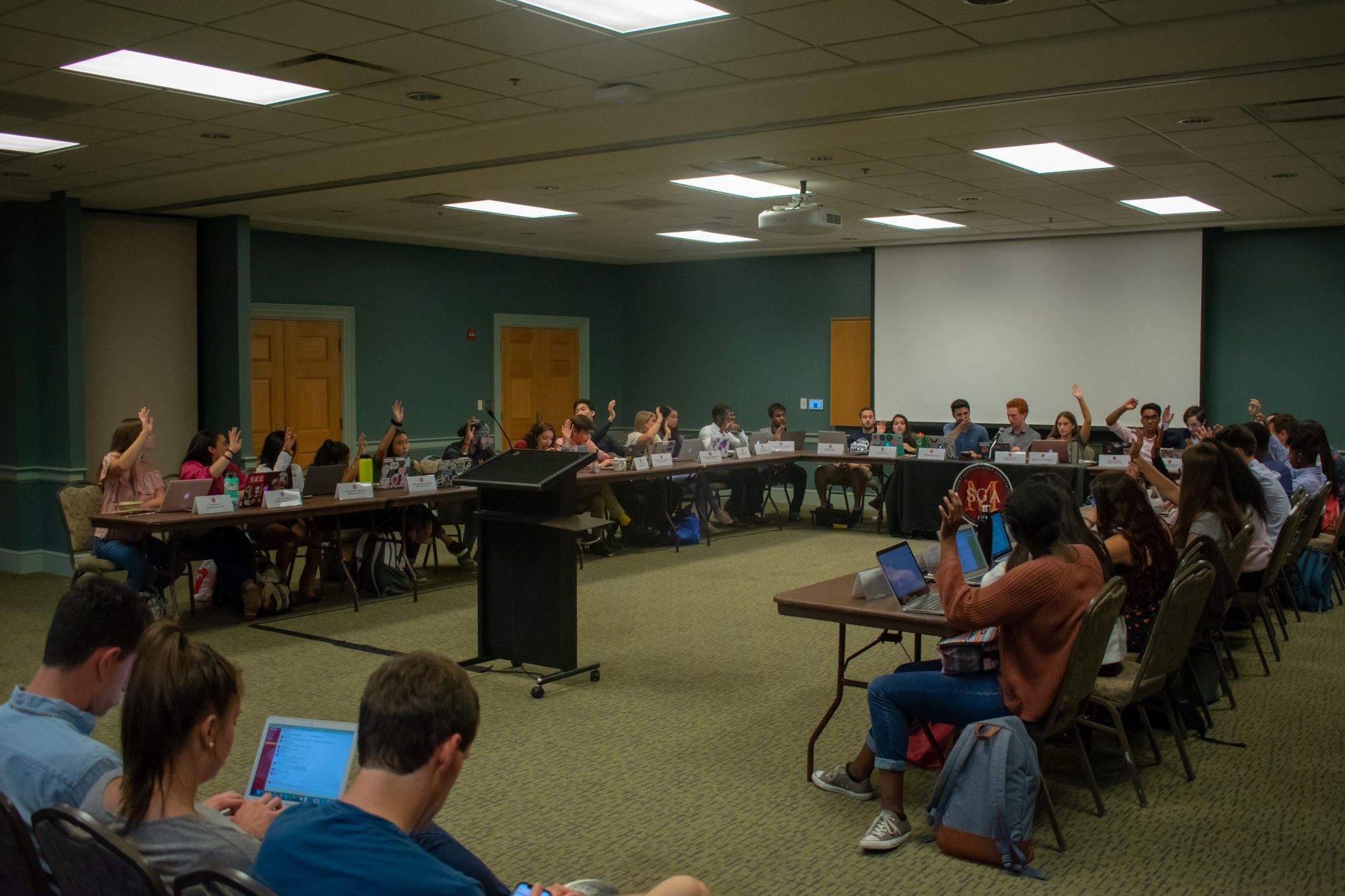After years of hibernation, the SGA’s #WTFUMD program is likely returning later this month to help students with day-to-day problems they encounter at the University of Maryland.
The program, which stands for “What to Fix,” is designed to improve communication between the Student Government Association and the student body. It allows students to submit both complaints and suggestions for university reform on issues they’re facing, such as maintenance concerns or textbook costs, by tweeting with the hashtag #WTFUMD or submitting an online form on the program’s website.
The program first began five years ago, but it lasted only one semester due to students sending in requests that didn’t require any assistance from the SGA, such as one-time facilities issues that didn’t need to be further investigated.
SGA president Jonathan Allen said it had “been on the back burner for a while,” and the group is still working to build up administrative contacts and finalize the advertising and technology involved so they can process every submission.
[Read more: New SGA executive members aim to streamline processes, change internal culture]
Allen, a member of the launch team, said that despite the original failure, it’s still valuable to provide students with a centralized resource to air their ideas.
“[The university] often operates in silos — we are a very decentralized university,” said Allen, a senior government and politics major. “It is hard to know who to bring this stuff up to.”
When suggestions are received, the student is assigned an SGA member that works as that student’s “caseworker,” according to a diagram on the site. The caseworker then takes care of everything for the student: contacting the correct facilities, reaching out to administrative contacts and keeping the student updated.
There’s also an online project tracker, provided on a Google spreadsheet linked on the program website, where students can view a list of student concerns that the SGA is working on.
Noah Eckman, the SGA’s speaker of the legislature, is also a member of the launch team. He echoed Allen, adding that the program would be useful for students who are intimidated by reaching out to the administration.
“A lot of times going to the administration can be daunting,” said Eckman, a junior chemical engineering major. “We have relationships with the administrators — it’s our job to be the people who are advocating for students. It shouldn’t be the job of every student to go advocate for these concerns on their own.”
Rori McDonald, a freshman biology major, said she would feel better going to a fellow student who would understand student problems better.
“I think I’d rather go to a student first than an authority,” McDonald said. “It would definitely be helpful because I don’t know everything [about the facilities] yet.”
[Read more: “They’re being boiled alive”: UMD student groups oppose SGA bill approving crab feast]
To avoid the same fate that befell the first attempt, Allen and Eckman said that this time they’ll advertise the program more effectively. They hope to target students that have smaller, more overlooked concerns, such as not being able to get into a class they need for their major, Eckman said.
“Everyone knows the big problems,” Eckman said, “But what are the things that aren’t in the spotlight?”
But even with small issues, some students said they feel they don’t need the SGA’s help and are capable of reaching out to administration with their own suggestions.
“I feel like I would first reach out to ‘4-WORK’ and to my college if I had an issue,” said Jacob Hyman, a senior communication major. “But maybe if nothing was solved, I would consider reaching out.”
Ryan Madsen, senior biology major, shared Hyman’s opinion. He doubted the SGA could actually follow through and convince the university to act.
“In my experience, SGA is sometimes relatively useless [in appealing to the university],” he said.
Madsen also said that while he does find the hashtag eye-catching, he feels it wouldn’t be appropriate for issues about textbooks and academics.
“The fact that it’s ‘#WTFUMD’ kind of trivializes people’s issues,” he said
In response to student concerns about the effectiveness of the SGA in reaching the administration, Eckman said students are in good hands.
“The SGA has a history of advocacy that is pretty successful,” Eckman said. “It’s not all going to be immediate successes — the university isn’t designed to change immediately — but we have a pretty good track record of getting things done.”



